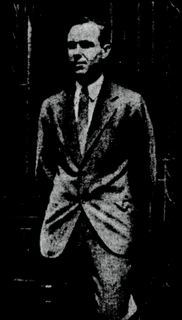A Quote by Rudolf Steiner
Failure to take note of the fact that the character of twentieth-century humanity differs from that of humanity in the fifteenth century, let alone before and at the time of the Mystery of Golgotha, is to sleep through the process of world evolution.
Related Quotes
Given that the nineteenth century was the century of Socialism, of Liberalism, and of Democracy, it does not necessarily follow that the twentieth century must also be a century of Socialism, Liberalism and Democracy: political doctrines pass, but humanity remains, and it may rather be expected that this will be a century of authority ... a century of Fascism. For if the nineteenth century was a century of individualism it may be expected that this will be the century of collectivism and hence the century of the State.
Film is more than the twentieth-century art. It's another part of the twentieth-century mind. It's the world seen from inside. We've come to a certain point in the history of film. If a thing can be filmed, the film is implied in the thing itself. This is where we are. The twentieth century is on film. You have to ask yourself if there's anything about us more important than the fact that we're constantly on film, constantly watching ourselves.
But the 20th century suffered "two" ideologies that led to genocides. The other one, Marxism, had no use for race, didn't believe in genes and denied that human nature was a meaningful concept. Clearly, it's not an emphasis on genes or evolution that is dangerous. It's the desire to remake humanity by coercive means (eugenics or social engineering) and the belief that humanity advances through a struggle in which superior groups (race or classes) triumph over inferior ones.
Sometimes people have said that Islam, in its own calendar, is still only in the Middle Ages. It's still in the fifteenth century or whatever. And Christianity in the fifteenth century, after all, was full of inquisitions and burnings at the stake, and so on and so on. So give Islam time, and it will reach the point of maturity that other religions have. But Mormonism is much younger than Islam, and it's got there already. So I don't think that's an argument that works.
It has been said that the three great develpments in twentieth century science are relativity, quantum mechanics, and chaos. That strikes me the same as saying that the three great developments in twentith century engineering are the airplane, the computer, and the pop-top aluminum can. Chaos and fractals are not even twentieth century ideas: chaos was first observed by Poincare and fractals were familiar to Cantor a century ago, although neither man had the computer at his disposal to show the rest of the world the beauty he was seeing.









































